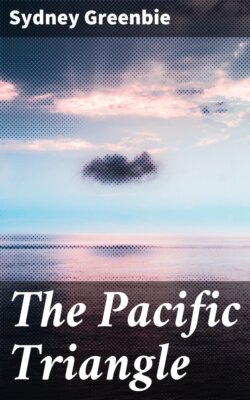Читать книгу The Pacific Triangle - Sydney Greenbie - Страница 20
На сайте Литреса книга снята с продажи.
ОглавлениеMILES AWAY ROSE THE FUMES OF KILAUEA
During the day they were ashen and at night like rose dawn
THE LARGEST CAULDRON OF MOLTEN ROCK ON EARTH
Eight hundred feet below it seethed
Differences abound in Hawaii. The Chinese is no twin brother of the Japanese. In fact, there is probably as much relationship between the Hawaiian and the Japanese as there is between these two "Oriental" races. The major part of the Japanese being Malay and the Polynesian Hawaiians having at least lived with the Malays some hundreds of years ago and infused some of their Caucasic ingredients into them, there is more of "home-coming" when "Jap" meets "Poly," than when he meets "Chink." But notwithstanding proximity and propinquity, over which diplomatic letter-writers labor hard, when the Chinese and the Japanese and the Hawaiian come together, the Hawaiian "vanishes like dewdrops by the roadside," the Chinese jogs along, and the Japanese runs motor-cars and raises children. The Japanese obtrudes himself much more upon the life of the community than the other two races, but with no more relinquishment of his own ways. He drives the cars and he drives white men to more activity than they really enjoy. And the Hawaiian sells necklaces of luscious flowers under the shaded porticoes of the buildings along the waterfront.
Aside from the adoption of our trousers and coat and hat, and a few other unimportant aspects of our civilization, the observer on the streets of Honolulu sees no mingling of races. The only outward sign of this mixing is the Salvation Army. There, large as life, with the usual circular crowd about them, stood these soldiers of misfortune, praising the Lord in English. A row of unlimited Oriental offspring upon the curb; a few grown-ups on the walk; a converted Japanese who looked as though his Shinto father had disowned him; a self-conscious white boy who confessed to having been converted just recently; two indifferent-looking soldiers; a distrustful-looking leader and a hopeless-visaged white woman. Twenty feet away, a saloon. I wonder what the Salvation Army is going to do now that that object of attraction is no more.
Photo, Otto C. Gilmore
A RIVER OF ROCK POURING OUT INTO THE SEA
Photo, Otto C. Gilmore
WHIRLING EDDIES OF LAVA UNDERMINING FROZEN LAVA PROJECTIONS
As far as Honolulu was concerned, it seemed to me that barter and trade were more intoxicating to the majority than was drink. The world everywhere about seemed a-litter with boxes and bales and shops and indulgences. How much of all the things exchanged, how many of the things for which these people toil endlessly, are worth while or essential, or even truly satisfying? The dingy stores, their only worth their damp coolness; the huddling and the innocent dirt; the inextricable mesh of little things to be done,—only the Chinese sage who posed for my camera in front of his wee stock of yarns was able to tell their value to life. His long, thin, pointed beard, his lack of vanity in accepting my interest in him, his genial smile and fatherly disinterestedness symbolized more than anything I saw in Honolulu the virtue and endurance of race. Beside the eager, grasping Japanese and the rolling, expanding white men, he looked like the overtowering palm-tree that seems to grow out of the monkey-pod in the park.
